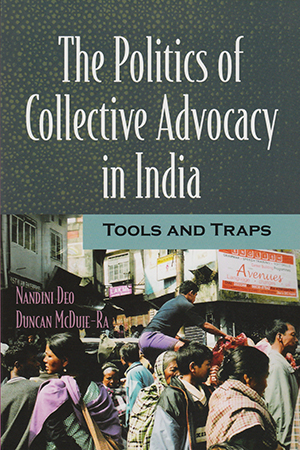Nandini Deo and Duncan McDuie-Ra explore India's vibrant civil society sector, focusing on the ways that it actually operates "on the ground." Offering an insightful analysis, they identify what influences the relative success or failure of various movements; and the tools that activists use to overcome obstacles; the traps that often derail efforts to frame, politicize, and effectively act on issues.
Nandini Deo is assistant professor of political science at Lehigh University. Duncan McDuie-Ra is associate professor of development studies at the University of New South Wales.
"Highly suitable for use in undergraduate teaching, whether on South Asia or on human rights and civil society more generally."—David N. Gellner, Asian Studies Review
"A significant contribution to understanding collective advocacy in India, spanning feminist, human rights, environmental, ethnic, and tribal movements."—Choice
"A long needed, finely researched, and admirably presented work.... Drawing from a variety of left and right movements, the book highlights the key determinants of social movement outcomes. It is required reading not just for scholars and researchers, but also those with any interest in the changing, emergent, future Indian society."—Arun Agrawal, University of Michigan
"A very readable, succinct, and excellent synthesis of the experiences of a number of organizations and advocacy movements. India's dynamic and complex civil society is captured well.... Both academics and development practitioners will find this book highly useful."—Sushma Ganguly, World Bank








